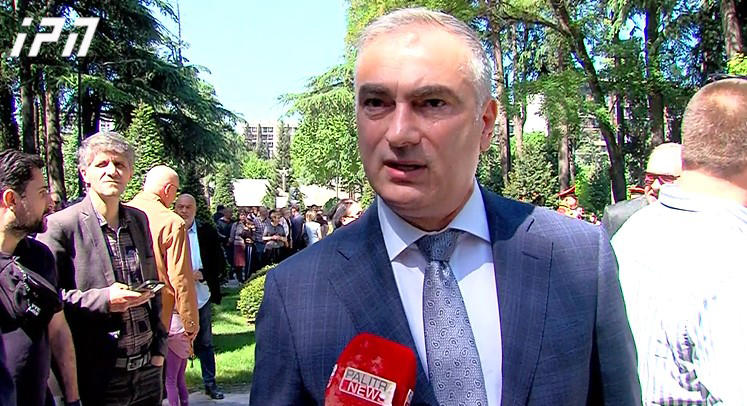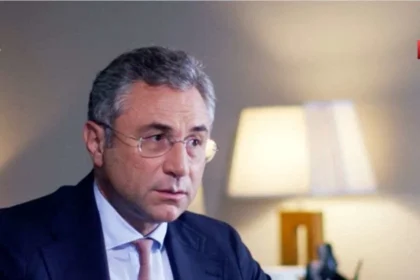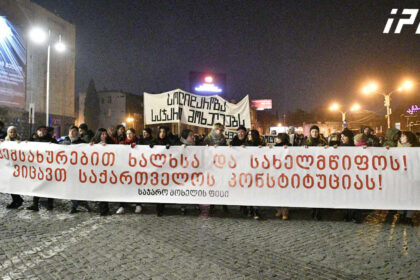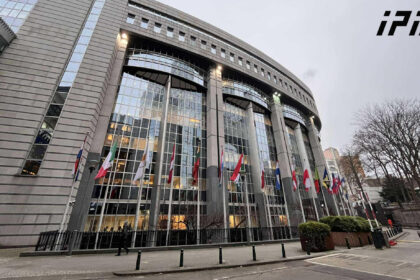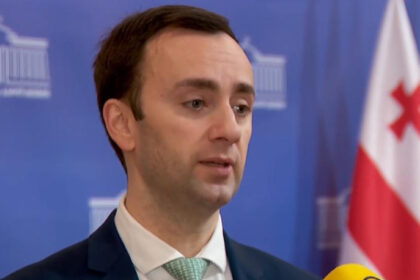**Justice Minister Hits Back at US Sanctions Threat**
Georgian Justice Minister Paata Salia has strongly reacted to being included on a list of individuals who could be sanctioned under the country’s MEGOBARI Act. This law allows the government to freeze assets and impose travel bans on people deemed to be a threat to national security.
When asked about his inclusion on the list, Salia expressed surprise and frustration. “I am very curious what basis Joe Wilson had for this,” he said, likely referring to US Ambassador John (not Joe) Kelly or possibly the US Assistant Secretary of State Victoria Nuland’s Special Envoy, but more probably former US Representative Joe Wilson who has been vocal on the issue of Russia/Georgia relations. However, Salia also emphasized that he was unaware of any direct communication with the US administration regarding this matter.
“It is absurd and stupid,” Salia said in response to the question, suggesting that someone else might be responsible for his inclusion on the list. “Perhaps you should ask those who send these lists from here, based on their personal interests…and they repeat it, absurd and stupid.” This implies that Salia believes some individuals within the US administration or elsewhere are behind this move.
Interestingly, when asked if he had any communication with the US administration about his inclusion on the list, Salia responded, “Why should I have?” He went on to highlight his positive relations with the United States, mentioning that he was educated there. This suggests that Salia believes his good relationship with the US and his educational background could help protect him from such sanctions.
Salia’s comments reflect a broader perception in Georgia that the country faces unjustified pressure from Western powers over its relations with Russia. Many Georgians feel that their government is unfairly targeted, while other countries receive more lenient treatment despite similar actions.
**Analysis:**
The inclusion of Salia on this list and his reaction to it offer a glimpse into the complex dynamics between Georgia and the West. The MEGOBARI Act has been criticized for being too broad in its scope, allowing for arbitrary asset freezes and travel bans without clear evidence of wrongdoing.
Salia’s denial that he had any communication with the US administration suggests that there may be tensions within Georgian-American relations. His emphasis on his good relationship with the United States could also indicate that he believes his connections can protect him from such measures.
The broader implications of this story extend to Georgia’s international relations, particularly its relationship with Russia and the West. The country has been navigating these complex geopolitics for years, often finding itself caught between competing interests.
**A Deeper Look:**
This situation highlights the need for transparency in decision-making processes related to sanctions and asset freezes. It also underscores the importance of clear communication between governments when it comes to their intentions and actions.
From Salia’s perspective, being included on this list could be seen as a personal attack, rather than a legitimate measure aimed at protecting national security. His response suggests that he feels misunderstood or unfairly targeted by Western powers.
The MEGOBARI Act has been criticized for its potential misuse in Georgia. This incident might fuel those concerns and raise questions about the effectiveness of such laws in maintaining peace and stability within the country.
In conclusion, Salia’s reaction to being included on this list offers a nuanced view into the complexities of Georgian-American relations and the broader implications of these dynamics for regional security.




